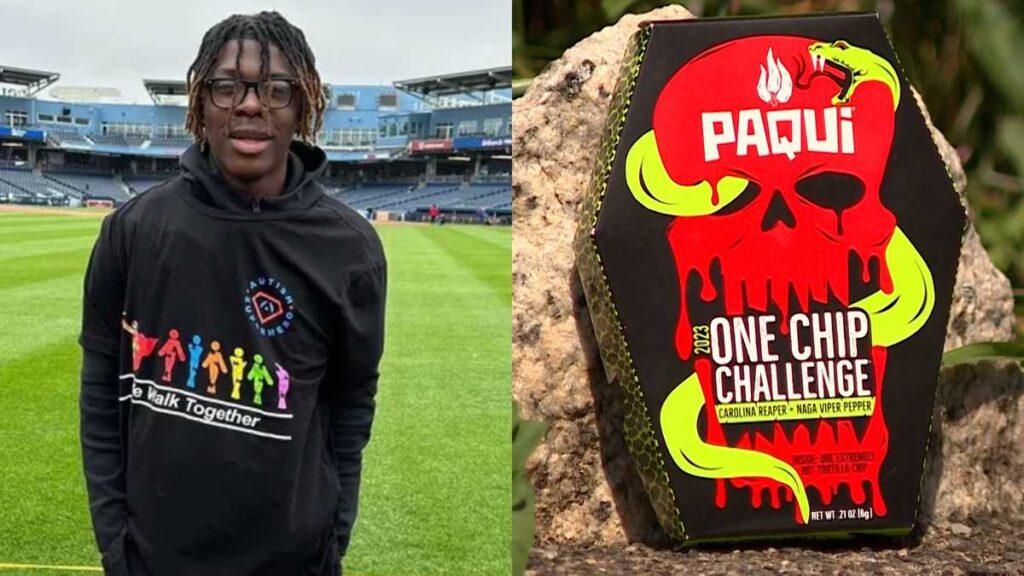Paqui, a subsidiary of the Hershey Company, has decided to remove its extremely spicy “One Chip Challenge” product from retail shelves out of precautionary measures. This decision comes in the wake of a tragic incident where a teenager reportedly died after consuming one of these fiery chips.
The tortilla chip company, known for daring consumers to try a single chip made with two of the world’s hottest peppers, has taken this action to address safety concerns. Paqui emphasized that the “One Chip Challenge” was intended exclusively for adults, with explicit and conspicuous labeling warning against consumption by children or individuals with sensitivities. Unfortunately, the company noted that there has been an increase in teenagers and others disregarding these warnings.
In response to this issue, Paqui is actively collaborating with retailers to withdraw the product from store shelves as a precautionary measure. Additionally, the company has pledged to provide refunds to customers who purchased the product, which was priced at approximately $9.99 for a single serving. Paqui chips are produced by Amplify Snack Brands, which Hershey acquired for around $1.6 billion in 2017.
The packaging of the chip featured a daring challenge for customers to endure as long as possible without consuming any food or drink after eating the chip and then share their reactions on social media. This year’s challenge generated numerous videos of people desperately seeking water, milk, or ice cream after consuming the chip.
The chip involved in the challenge was crafted using the Carolina Reaper, known to measure over two million Scoville heat units, a scale used to quantify pepper heat levels, and the Naga Viper, measuring just under 1.4 million Scoville units. In contrast, jalapeño peppers typically rate between 2,000 and 8,000 Scoville units.
Tragically, Harris Wolobah, a 14-year-old, had reportedly consumed the chip shortly before his untimely death. Although the exact cause of his death remains unclear, his family suspects a connection to the chip. The Massachusetts Office of the Chief Medical Examiner is conducting an autopsy, and results are expected in up to 12 weeks.

Harris’s mother, Lois Wolobah, shared her concerns, emphasizing the need for awareness among parents regarding the chip’s potential risks. Several individuals who attempted the challenge reported severe stomach discomfort after consuming the chip.
Kim Metcalfe, a spokeswoman for Paqui, expressed the company’s deep sadness over Harris’s death and extended condolences to the family. She reiterated that the product label clearly warned against its consumption by children or individuals with sensitivities to spicy foods, allergies, pregnancy, or underlying health conditions. She stressed that the removal of the chip from shelves was a voluntary measure, not a recall.
Previously, marketing materials for the challenge encouraged participants to test their endurance with statements like, “How long can you last before you spiral out?” These statements have been removed from the company’s website. As of Thursday, the challenge’s website only features Paqui’s new statement, the original warning label, and a shortened FAQ.
The chip’s packaging included a warning advising that it should be kept out of the reach of children. Individuals who are pregnant, have medical conditions, or are sensitive or allergic to spicy foods, peppers, nightshade plants, or capsaicin were also cautioned to avoid the chip.
It remains unclear how many “One Chip Challenge” packages were sold since the release of the latest flavor in August. A local CBS affiliate in Boston reported finding the chip at a grocery store near Harris’s school.